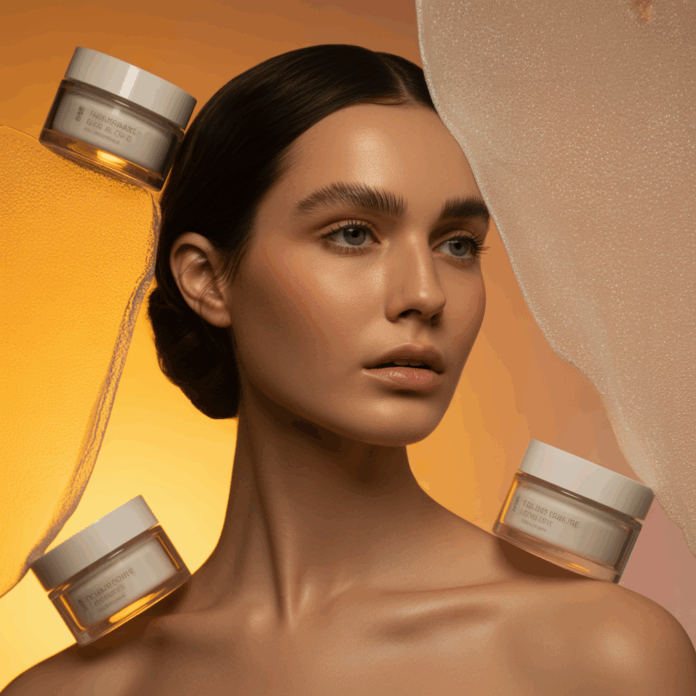Ever been at brunch in your favourite crisp white dress, caught a photo in the golden hour, and felt your confidence wobble because of dark spots on your cheeks? I’ve been there — and the good news is you don’t have to live with stubborn patches. Whether it’s sunspots, melasma, or post-inflammatory hyperpigmentation, choosing the right peel can make a huge difference in skin tone and texture.
What is hyperpigmentation and why chemical peels help
Hyperpigmentation is the darkening of skin in patches caused by excess melanin production. It can come from sun damage, acne scarring, hormones, or inflammation. Chemical peels remove the top layers of skin, encouraging cell turnover and reducing visible discoloration. The right acid, concentration, and treatment plan will target dark spots while keeping your skin barrier healthy.
Choosing the best chemical peel for hyperpigmentation
Not all peels are created equal. Here are common options with who they’re best for:
Glycolic acid peels (alpha hydroxy acid)
- Best for: mild to moderate pigmentation and overall brightening.
- Why it works: small molecule penetrates well to boost exfoliation and collagen.
- Ideal if you want: a gentle professional peel or effective at-home formulations (lower strengths).
Salicylic acid peels (beta hydroxy acid)
- Best for: acne-prone skin with post-inflammatory hyperpigmentation.
- Why it works: oil-soluble, anti-inflammatory, helps clear pores and fade dark marks.
Lactic acid peels
- Best for: sensitive skin seeking gentle brightening.
- Why it works: hydrates while exfoliating; a softer alternative to glycolic acid.
TCA peels (trichloroacetic acid)
- Best for: moderate to deeper pigmentation or melasma under professional supervision.
- Why it works: medium-depth peel that reaches deeper pigmentation but requires downtime and sun protection.
Jessner peels or combination peels
- Best for: stubborn pigmentation, textured skin, and mixed concerns.
- Why it works: blends acids for targeted exfoliation; commonly performed by dermatologists or experienced aestheticians.
Important note: deep peels can be very effective but carry higher risks and downtime. Consult a board-certified dermatologist for deeper treatments, especially for darker skin tones or active melasma.
At-home vs. professional chemical peels
At-home peels (lower-concentration AHAs or BHAs) are great for maintenance and gradual improvement. For pronounced dark spots, professional peels provide stronger formulations, controlled application, and better results. Always start with a patch test and discuss your skin type and any meds with a pro.
Pre- and post-peel skincare routine
Helping your peel succeed is about preparation and aftercare:
- 2–4 weeks before: stop retinoids and strong exfoliants if advised; begin gentle brightening serums with vitamin C and niacinamide.
- Day of: arrive with clean skin, avoid waxing or hair removal on treatment areas that week.
- Immediately after: use gentle cleanser, hydrating serums (hyaluronic acid), and calm the skin with fragrance-free moisturizer.
- Sun protection: apply broad-spectrum SPF 30+ daily, reapply every two hours when outdoors. This is non-negotiable to prevent rebound pigmentation.
- Avoid: tanning, harsh scrubs, heat treatments, and active ingredients until your skin has fully healed.
Makeup, outfits, and beauty tips while healing
Peeling skin or redness doesn’t mean you have to stay home—just adapt your beauty and fashion choices so you look and feel great while protecting healing skin.
Makeup suggestions
- Opt for mineral, non-comedogenic concealers and lightweight foundations that won’t irritate sensitive skin.
- Use color-correcting concealers (peach or orange for deeper spots) sparingly and blend well with a damp sponge.
- Skip heavy powders; instead use hydrating tinted sunscreen or a light-coverage cushion for a dewy finish.
Outfit combinations
- Choose breathable, soft fabrics like cotton or silk to reduce friction against face and neck.
- Flattering combos: a flowy blouse and high-waisted jeans for casual days, or a silk scarf and tailored blazer for meetings—scarves can both style and protect the neck area from sun.
- Accessories: wide-brim hats and oversized sunglasses are both chic and sun-smart.
Practical beauty tips
- Schedule peels in cooler months when sun exposure is lower.
- Keep a hydrating mist in your bag for midday refresh without heavy makeup layering.
- Integrate gentle brighteners like niacinamide into your daily routine to prolong results.
How to pick the right provider
Look for a board-certified dermatologist or licensed medical aesthetician with experience treating hyperpigmentation in your skin tone. Ask about peel concentration, expected downtime, number of sessions, before-and-after photos, and aftercare support.
Frequently Asked Questions
1. Is a chemical peel safe for all skin tones?
Chemical peels can be safe for many skin tones, but darker skin has a higher risk of post-inflammatory hyperpigmentation if a peel is too aggressive. Always consult a specialist experienced in treating your skin type and start with conservative treatments or test spots.
2. How many peels will I need to see results?
It depends on the peel strength and your pigmentation. Lighter peels may require monthly sessions for several months; medium peels often need fewer sessions. A personalized treatment plan from your provider will set realistic expectations.
3. Can I wear makeup right after a peel?
Very light, non-irritating makeup can typically be used after gentle peels once the initial sensitivity subsides, but heavy makeup and exfoliating products should be avoided until your skin has healed. Follow your provider’s timeline for returning to cosmetics.
Final thoughts and next steps
Picking the best chemical peel for hyperpigmentation means balancing effectiveness with safety and downtime. For mild discoloration, glycolic or lactic peels can brighten and smooth with minimal recovery. For deeper pigmentation, professional TCA or combination peels may be necessary—with careful aftercare and expert guidance.
Ready to start a clear-skin plan? Book a consultation with a trusted professional, update your skincare routine, and check current makeup trends for gentle coverage ideas. For outfit inspiration during recovery, browse our fashion guides and choose pieces that protect and flatter your fresh glow.
If you’d like, tell me your skin type and concerns and I’ll suggest a starter peel and a four-week routine to prepare and maintain results. Embrace the process—your best skin (and wardrobe) is ahead.





